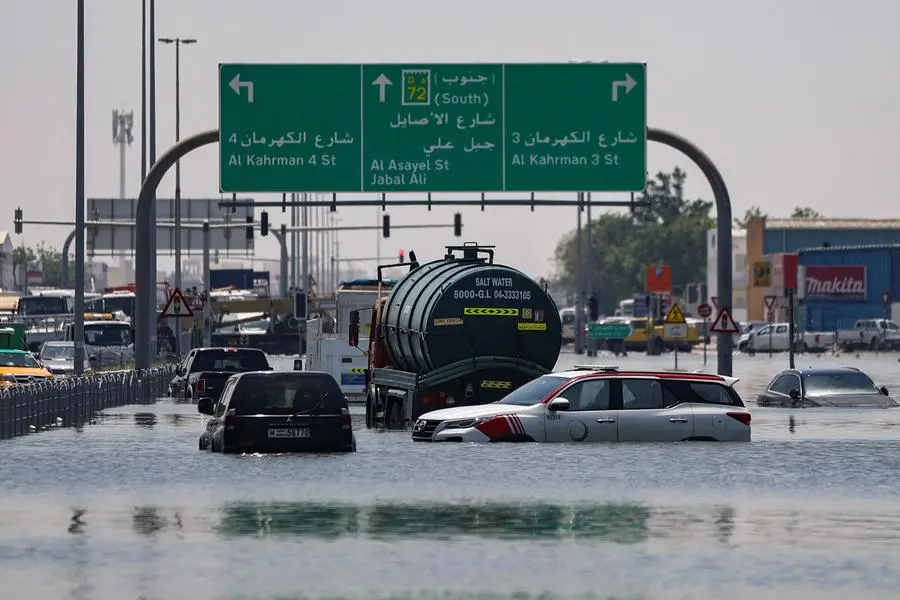PHOTO
Several climate change and weather experts have affirmed that the intense and unprecedented rainfall experienced in the UAE on 16th April is indicative of the severe and exceptional climate shifts occurring globally due to the rise in record carbon emissions, emphasising that this extreme rainfall event cannot be scientifically attributed to artificial cloud seeding.
On 16th April, the UAE experienced the most substantial rainfall in its modern history across numerous regions, marking the largest volume since climate data recording began in 1949.
The National Centre of Meteorology reported the highest recorded rainfall in the Khatm al Shikla area of Al Ain, reaching 254.8 mm. This figure represents the highest amount in 75 years, emphasising the exceptional nature of this heavy rainfall event. Such extraordinary precipitation contributes significantly to elevating the average annual rainfall in the Emirates and bolstering the nation's groundwater reserves overall.
In this regard, Dr. Diana Francis, Senior Research Scientist, and Head of the Environmental and Geophysical Sciences (ENGEOS) Lab at Khalifa University, said in statements to the Emirates News Agency (WAM) that the extreme weather conditions that the UAE has witnessed in mid-April 2024 are exceptional in terms of severity and widespread impacts. “The amount of rain that fell on the 16th is unprecedented and is equivalent to the amount of rain the UAE receives in 2 years or the amount London receives in 7 months on average.”
She explained that cloud seeding did not cause or contribute to the exceptional rainfall event, as the scale of the event is quite large and has impacted several countries in the region. Additionally, the event was forecasted at least 5 days in advance, and in those forecasts, cloud seeding is not accounted for. Furthermore, when such severe events are forecasted, cloud seeding is not conducted because it is too risky for the pilots to fly inside those convective clouds.
She added that cloud seeding aims to enhance rainfall by helping water vapour to condense in existing clouds. It cannot in any way create clouds or water vapour itself, these must be present in order to perform seeding. During this event, all the conditions were met to produce large amounts of rain without the need for seeding.
Dr. Francis forecasted that extreme weather events will become increasingly frequent and intense as a result of atmospheric warming. This warming phenomenon enables the atmosphere to retain more moisture, exacerbating the intensity of weather extremes.





















